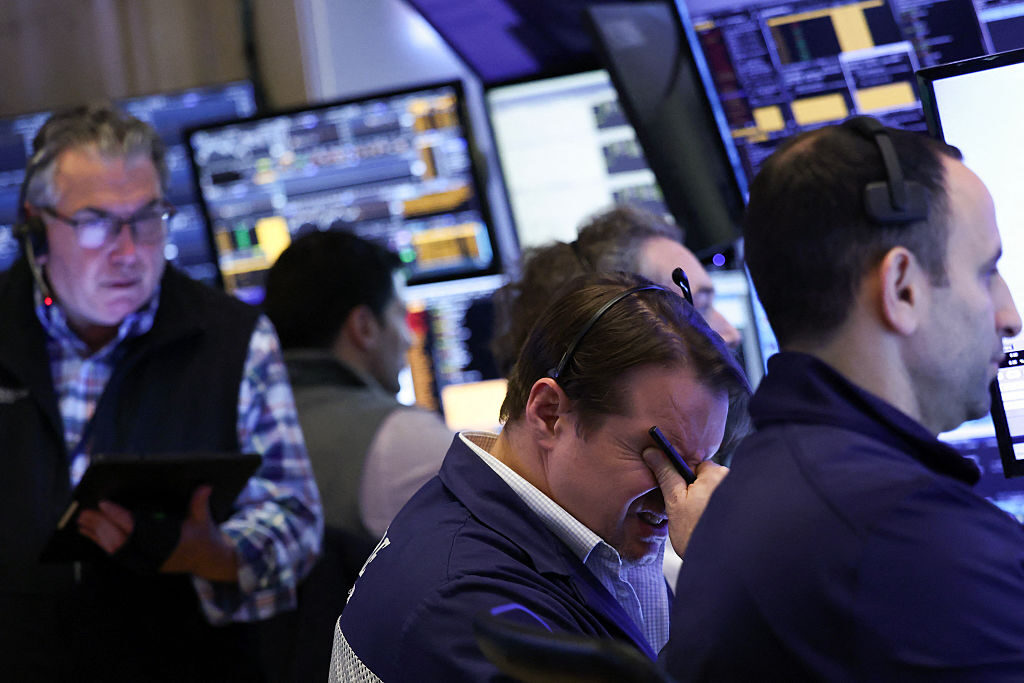The consequences of the Liberation Day whirlwind are in full flow. Recently, Donald Trump’s trade policies have been a minor driver of market decline, but now there is little doubt that they are the main source of instability. Global financial markets are in free-fall after the White House imposed tariffs so high and so extensive that — if they stick — effectively signal the end of globalization. In response, China has announced retaliatory tariffs of 34% on American imports to take effect on 10 April.
Much of the chatter around the tariffs has focused on technical details of levies on imported goods. Just as the Covid pandemic created a slew of armchair epidemiologists, so too Liberation Day has minted a gaggle of armchair economists. The crux of the matter is that the tariffs are designed to force the United States to balance its trade with the rest of the world — or, perhaps more accurately, to force the rest of the world to balance its trade with the United States.
This means that tariffs are calibrated relative to the size of the trade deficit that any given country runs with America. For example, Russia barely trades with the United States due to a decade of sanctions and so despite nominally being an adversary, it was hit with limited tariffs. Meanwhile Vietnam, nominally an American ally, got hit significantly because it runs enormous trade surpluses with the US. These policies have nothing to do with fairness or tit-for-tat trade war: they are part of a radical plan aimed at restructuring the global economy.
No one, even those in the Trump administration, know if they will work to America’s advantage. Tariffs this large should be expected to cause inflation domestically. Yet today it was announced that Opec+ is set to ramp up oil production dramatically, and, as a result, oil prices have crashed by over 3%. Falling oil prices may be enough to offset the price increases from tariffs, although gas has remained relatively cheap in America due to the scale of internal production. Russia has long resisted an increase in oil production and the fact that Vladimir Putin’s trade envoy is currently in DC hammering out a bilateral economic partnership suggests that there is a much larger global strategy at play here.
As for the markets, there seems to be no end to how far stocks will fall and many are talking about another financial crisis. If they are correct, Wall Street could suffer more than it did in 2008. This is because its business model is the inverse of the globalized trade deficit model that the United States has run for years. In this model, America sucks in imports from the rest of the world and sends its trade partners paper dollars in return. Wall Street then recycles these paper dollars.
The Trump administration has signaled that it is deadly serious about rebalancing trade, which means that the excess dollars will stop flooding world markets. If this happens, much of the stock market’s current business model will no longer be viable. Financial markets should expect layoffs during the current downturn that will never be reversed.
Though many are wondering if the Trump administration understands how seismic its plan is, there is plenty of evidence that it does. Stephen Miran, Chairman of the Council of Economic Advisers and himself a veteran of Wall Street, released a blueprint weeks ago for how tariffs would be implemented. It shows, clearly and concisely, the potential downsides and what sort of problems might be faced as it is implemented. For example, Miran knows that American voters may bear the brunt of higher prices. “There is a path by which these policies can be implemented without material adverse consequences, but it is narrow,” he has conceded. The Trump team may be radical, but it is not completely ill-informed.
The US is taking an enormous gamble. Amid stiff competition from China and an ever-increasing deficit at home, American power has been waning in recent years. If it had continued as normal, its dominant global influence would have almost certainly been sacrificed. This new strategy, then, can be understood as a high-risk gambit to get the country on a stronger economic footing in an increasingly multipolar world. Russia, hardly hit, seems to be onside, while China, clearly aggravated, may be able to absorb much of the pain. Europe is the piggy-in-the-middle: disoriented, trapped, and unsure what to do next.











Join the discussion
Join like minded readers that support our journalism by becoming a paid subscriber
To join the discussion in the comments, become a paid subscriber.
Join like minded readers that support our journalism, read unlimited articles and enjoy other subscriber-only benefits.
Subscribe